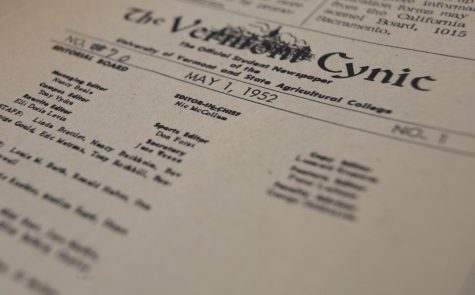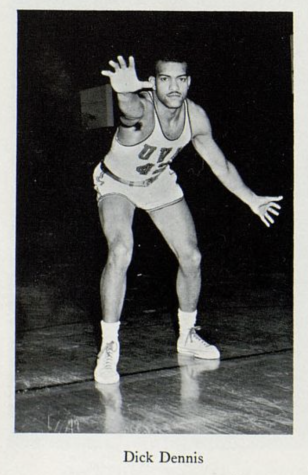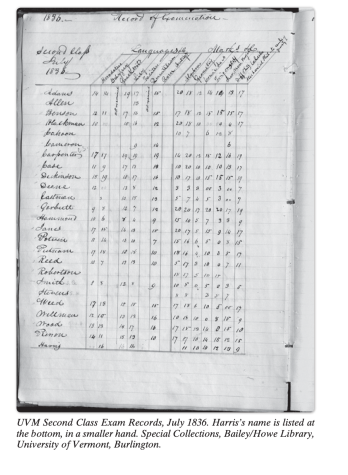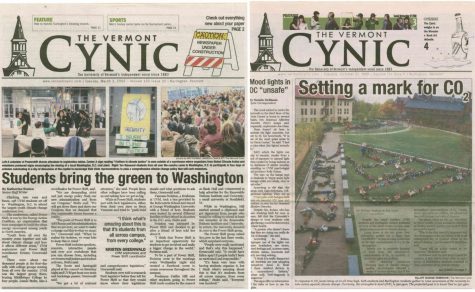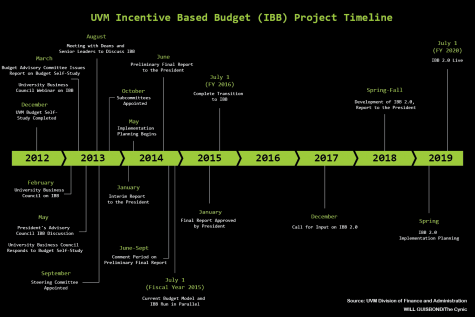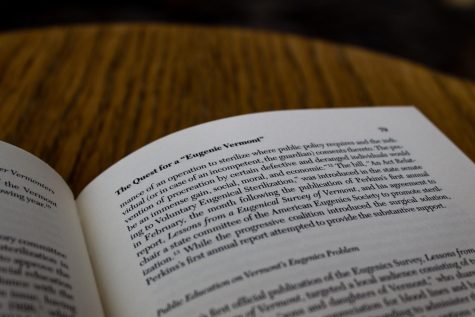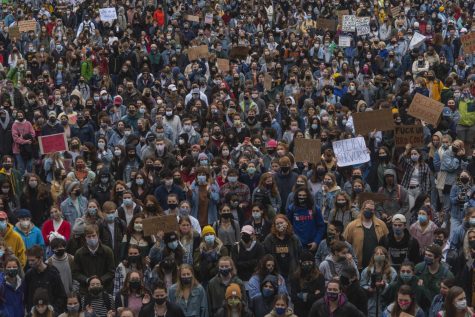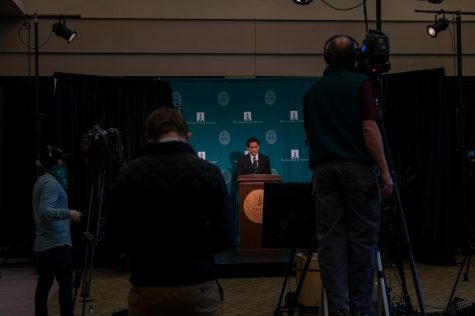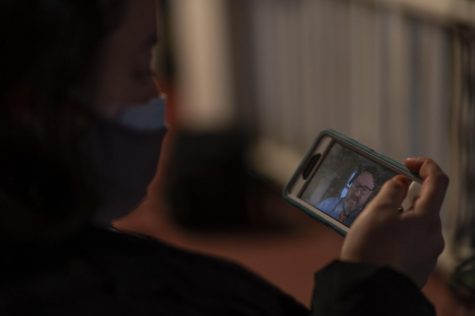The Fall Institute on Prejudice: A Thought-Provoking Success
UVM’s Department of Psychology recently hosted the sixth annual Fall Institute on Racism, Heterosexism, Bias and Oppression, bringing a diverse range of scholarly speakers to campus.
The three-day event included workshops, films, lectures, discussions, and casual receptions aimed at bettering peoples’ understanding of the dangers that prejudice can induce on society. Coordinated by UVM’s Dr. Sondra E. Solomon, the Fall Institute consisted of various speakers from colleges and universities from around North America.
While the Fall Institute conference is no doubt a positive vehicle for promoting human awareness, its roots stem from dark days on the UVM campus. In 1997, UVM was hit with a slew of crimes targeted at marginalized minorities.
News of the crimes circulated around campus but little action was taken. In response, Dr. Solomon found herself and 21 others sitting around a conference table to blueprint what would become the Fall Institute of Racism Heterosexism, Bias, and Oppression.
“Silence is acceptance,” says Dr. Solomon, a clinical psychologist by training but a social psychologist by self-proclamation. “If we don’t speak, we say [prejudice] is okay.”
For those involved in the Fall Institute, the goal was to raise awareness of prejudice and its inherent dangers, especially among young people.
Ideally, the whole community would benefit from such lectures and workshops, but Dr. Solomon remains realistic.
“This is no ‘kumbyah’ session-I’m not that kind of woman,” Dr. Solomon explained. Rather, the Fall Institute’s intention is to get people to at least begin thinking about racial, ethnic, religious and gender intolerance.
There are no demands or expectations in attending the conference, just opportunities to become enlightened by a plethora of experienced speakers.
For the most part, these opportunities were taken advantage of. Students, faculty and other members of the community convened at UVM for what was one of the best turnouts in the history of the Fall Institute symposium.
In fact, some workshops and discussions required pre-registration due to their immense popularity.
One film and discussion in particular, led by Shokoufeh Sakhi of York University, received a better-than-expected turnout.
Sakhi, a political prisoner and refugee from Iran, had students view “The Tree That Remembers,” a documentary containing firsthand accounts of political imprisonment and torture in Iran during the oppressive reign of Ayatollah Khomeini and his Islamic-radical regime.
Ms. Sakhi gave students a chance to ask questions and discuss her personal experiences afterwards.
Sakhi recounted her imprisonment, depicting it as a caging with a purpose of conformity to fundamental Islam. Because she did not agree with the government’s oppressive ideals, Sakhi was forced, among other things, to remain in a “coffin,” or a small box resembling a cubicle, for nine months while propaganda blasted in her ear-a brainwashing technique. “I felt broken,” recounted Sakhi.
While approximately 90 percent of prisoners in these coffins died or denounced their beliefs, Sakhi found ways to stay alive by remembering that life is her right as a human being.
She never denounced her beliefs, staying conscientious of life by watching mosquitoes suck her blood-a sign of vivacity to her. “That’s life,” Sakhi told the audience self-convincingly.
Ms. Sakhi went on to discuss this event in the context of today’s global society. After coming to Canada, she realized that her past was something totally irrelevant to this country, which, as she explained, is extremely problematic.
“Not caring is our disease in this culture-one we are being cooked in,” says Sakhi. Ironically, one of the first phrases Ms. Sakhi says she learned on arriving in Canada was “Who cares?”
Who does care? The fact that many societies view such events in the Middle-East and Africa as “their” crises is problematic.
This idea of an “other” discounts the larger picture of the human race. One may be Islamic, black, white, Catholic, Jewish, Asian etcetera, but we are humans first.
“We’re not that different,” Sakhi says. When asked if she had trouble adapting to life in Canada because she was a minority, Ms. Sakhi looked confused and answered, “We are all human. Walking down the street, I don’t see an Iranian, I see a human.”
As humans, Sakhi believes, we hold a responsibility to not look upon one another as “others”. This disease of dividing international social responsibility by race, class, sex, and religion, Sakhi says, is a festering one.
When the film and discussion were over participants filled out surveys in order to assess the effectiveness of the event and offer advice to improve the next Fall Institute conference.
A survey was hardly needed though, as many left the discussion humbled with teary eyes, proving success in at least getting people to think about the dangers of prejudice in society.
This film and discussion was just one of the several informative activities that took place at this year’s Fall Institute on Racism, Heterosexism, Bias and Oppression, which was deemed a success by attendees.
The coordinators and speakers proceeded effectively, illustrating to the community that in order to succeed in both local and international societies, the lines that connect us should be bolder than the lines that divide us.


